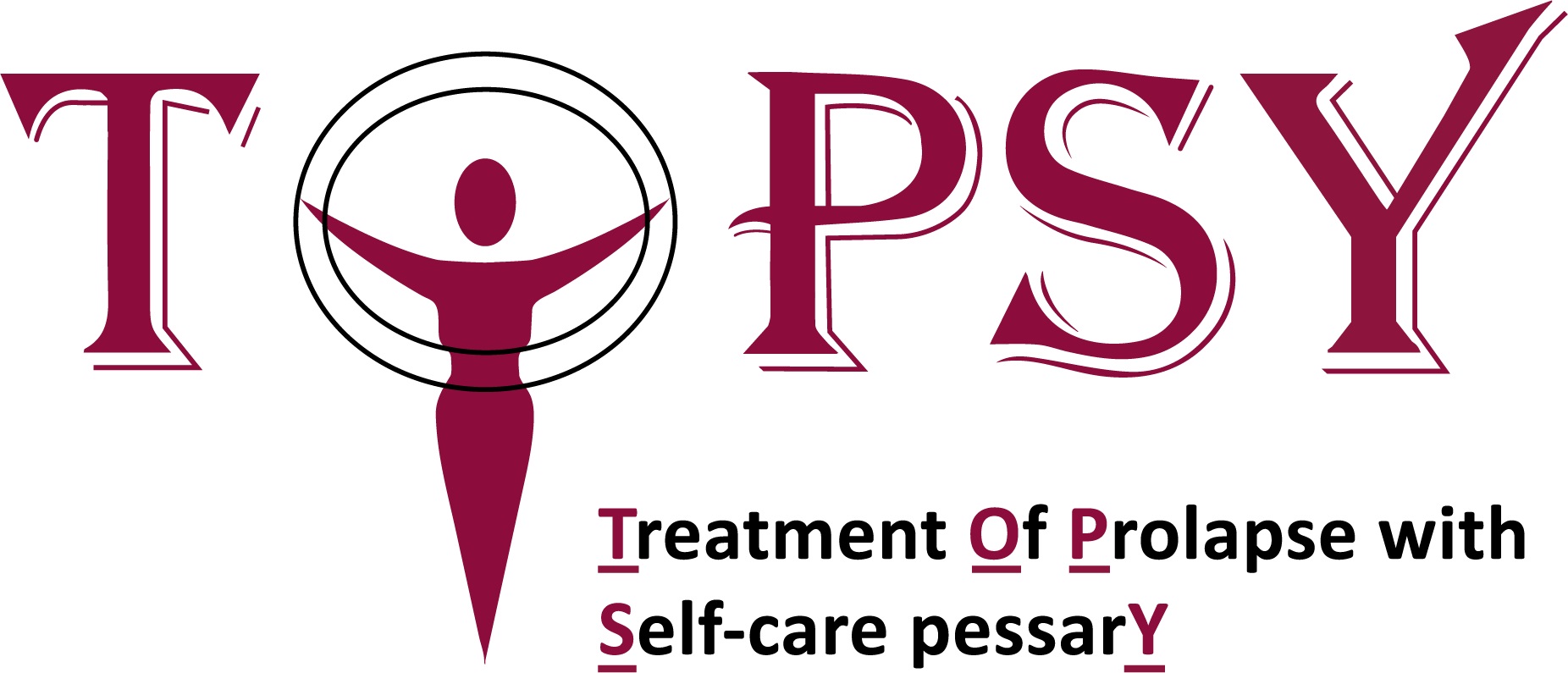
Pelvic organ prolapse affects about 40% of women over 40 years of age and the numbers of women affected is expected to rise.
Two thirds of women initially choose a vaginal support pessary to treat their prolapse symptoms. It is usually fitted at a gynaecological clinic and the woman returns every 6 months to have it removed and changed. However, it is possible that women could remove, clean and reinsert their pessary themselves at home, thus offering them more confidence in their ability to maintain and improve their own health; this is called self-management.
TOPSY, a parallel group multicentre randomised controlled trial, funded by the NIHR HTA programme, aims to recruit 330 woman to compare the clinical and cost-effectiveness of pessary self-management with standard pessary care in terms of women’s condition-specific quality of life.
The primary outcome is a prolapse-specific quality of life, measured using the Pelvic Floor Impact Questionnaire (PFIQ-7) at baseline, 6, 12 and 18 months.
Follow-up to 4-years post-randomisation is complete and data analysis is ongoing’.
TOPSY is led by Dr Carol Bugge based at the Glasgow Caledonian University.
Contacts
- Suzanne Breeman; s.breeman@abdn.ac.uk
